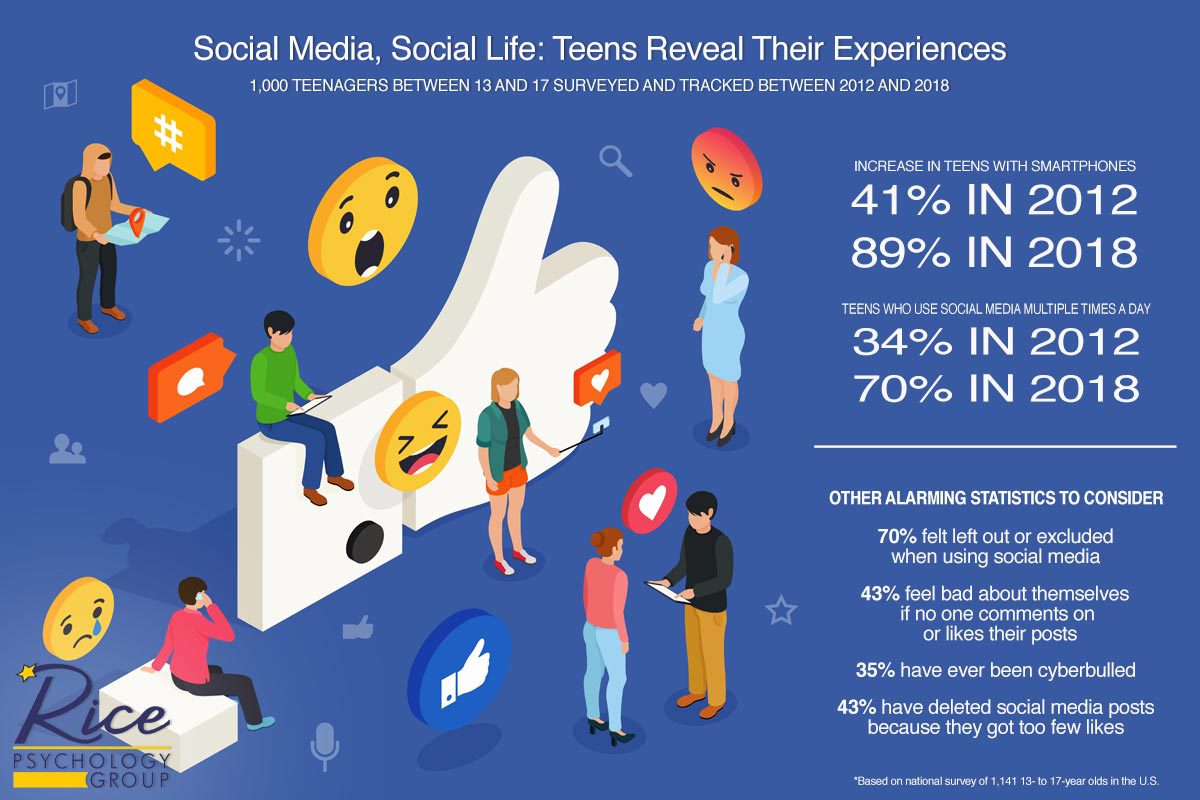
Consider the following story as it relates to this week’s topic.
It might be hard to imagine, but social media as we know it is a relatively new concept. It may have gotten its start over a decade ago, but its role in society wasn’t substantial until only a few years ago. Funnily enough, there is a generation that was born into these social media-driven times. What does this mean to them? And what can we do to better understand them? Our Tampa psychologists and counselors want to share some helpful information about this topic.
The Stats
Social media undoubtedly plays a central role in many teenage lives. Click To Tweet
Social media undoubtedly plays a central role in many teenage lives. It’s a determining factor in how they interact with their peers, their relationships with people from around the globe and the way they reach information. However, an infographic from Common Sense Media named Social Media, Social Life: Teens Reveal Their Experiences took a closer look at teenagers and social media.

The report surveyed over 1,000 teenagers between 13 and 17 and tracked changes all the way back to 2012. This ensured a more detailed account of their relationship with social media along with how it continues to evolve. Among the most outstanding numbers is the increase of teens with smartphones. A percentage of 41% in 2012 compared to 89% in 2018!
As for the number of teenagers who use social media multiple times per day, the number rose from 34% in 2012 to 70% in 2018. The infographic also included more alarming statistics regarding teenage feelings of exclusion, cyberbullying, low confidence levels and lack of attention:

Proactive Steps
Social media is a great place for kids to share their interests, post photos and make new friends. But remember that free-reign to do what they want can potentially be a bad idea. Keep the following things in mind with their social media usage:
- Monitor their activity to spot anything suspicious and provide a much-needed layer of protection.
- Ensure open dialogue with them so they know what is appropriate to share.
- Monitor their friends list to make sure that no one questionable is communicating with him/her.
- Keep track of all login information in case you need emergency access to their accounts.
- Regulate their time spent on social media. Doing so can prevent them from over-sharing or interacting with the wrong people.

Make Strides with Rice Psychology Group
The thought of your kids sharing their daily lives with others on the Internet can be scary. Click To TweetThe thought of your kids sharing their daily lives with others on the Internet can be scary. Remember that your kids will sometimes need an adult to help manage their social media time and it’s your responsibility to keep an eye on them. Our Tampa psychologists and counselors want to help you understand the basics of social media for your children’s sake. If you would like more information, get in touch with us today.

